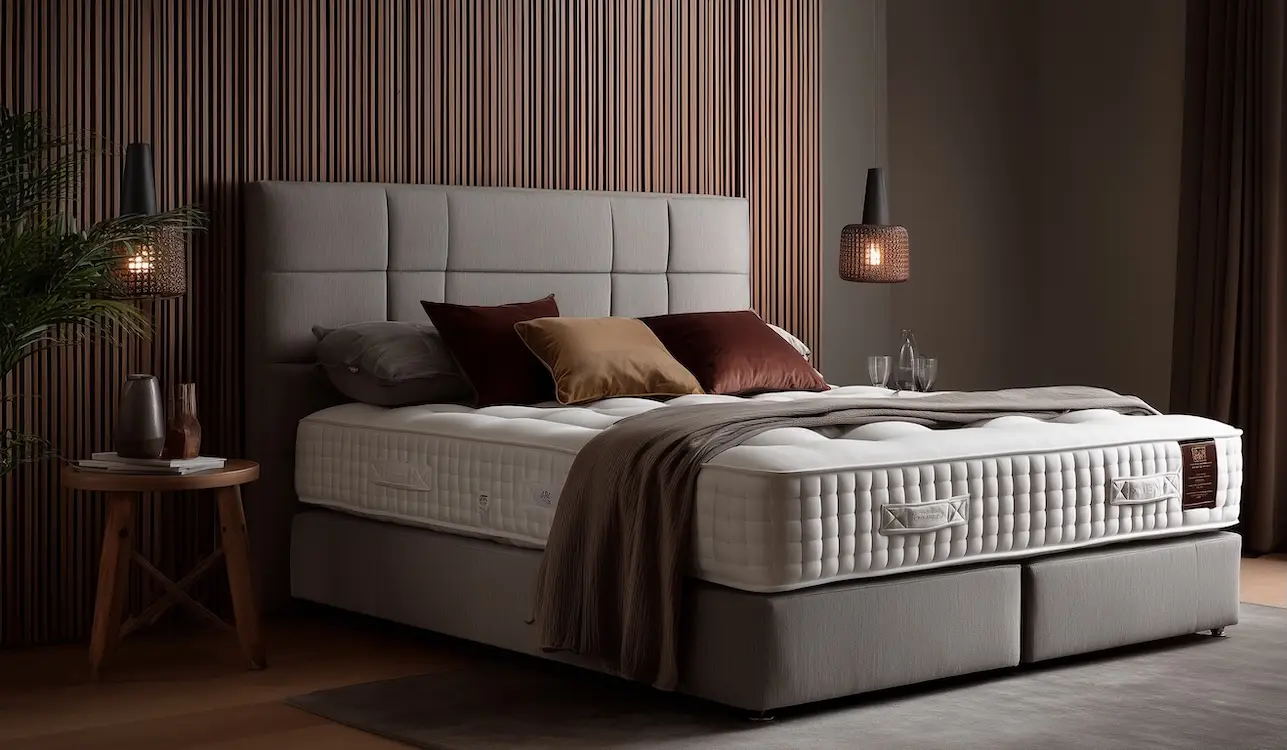A restful night’s sleep begins with the right mattress. While pillows, bedding, and lifestyle all play a role, the mattress is the foundation that supports your body for hours each night. Choosing wisely can improve sleep quality, reduce aches, and leave you feeling energised every morning. The right mattress is not only about comfort; it is also about maintaining good posture, supporting the spine, and creating a healthier sleep environment. This guide will help you understand what to look for in a mattress, enabling you to make a choice that benefits your well-being for years to come.

Why Your Mattress Matters For Health And Comfort
A mattress is more than a surface to lie on. It determines how well your spine is aligned, how pressure points are cushioned, and whether your body can fully relax during the night. An unsuitable mattress may leave you tossing and turning, waking with stiffness, or struggling with back pain. A supportive option, on the other hand, encourages natural alignment and allows your muscles to rest appropriately. With the right choice, you not only sleep more deeply but also wake up with improved energy, focus, and mood.
Different Types Of Mattresses And Their Benefits
Mattresses come in a variety of designs, each offering unique advantages. Pocket-sprung mattresses are popular for their even weight distribution and ability to reduce motion transfer, making them ideal for couples. Memory foam mattresses contour to the body, providing excellent pressure relief and support, particularly for people with joint or back pain. Latex mattresses are resilient and breathable, offering comfort and durability with natural resistance to allergens. Hybrid mattresses combine springs with layers of foam or latex to give balanced support and comfort. Understanding these options will help you select a style that best suits your body and sleeping habits.
Choosing The Right Mattress Firmness Level
Firmness is one of the most essential factors in choosing a mattress. The right level depends on your sleeping position and personal preference. Side sleepers often require a medium-firm mattress that cushions the shoulders and hips while maintaining spine alignment. Back sleepers typically benefit from medium to firm support that maintains alignment without creating pressure. Stomach sleepers usually prefer a slightly softer mattress to prevent strain on their neck and lower back. Trying different firmness levels before buying can make a significant difference to your comfort and sleep quality.
Mattress Features That Enhance Sleep Quality
Modern mattresses are designed with features that go beyond basic support. Cooling technologies, such as breathable fabrics and gel-infused foams, help regulate body temperature for individuals who tend to sleep warm. Zoned support systems provide extra firmness where the body needs it most, such as the lower back, while remaining softer in other areas. Motion isolation reduces disturbances when sharing a bed, allowing each person to move without disturbing the other’s sleep. These additional features can transform the way you rest, making the investment in a high-quality mattress worthwhile.
Caring For Your Mattress For Long-Term Use
Even the best mattress will not last forever, but proper care will extend its lifespan. Rotating or flipping your mattress as recommended can help maintain its shape and support. Using a high-quality mattress protector keeps it free from dust, moisture, and allergens. Regular cleaning following the manufacturer’s guidelines ensures a healthier sleep environment. Most mattresses need to be replaced every seven to ten years, although some premium models may last longer. Taking care of your mattress helps preserve its comfort and extends the life of your investment.
Final Notes About Choosing The Right Mattress
A good night’s sleep begins with the proper foundation, and that foundation is your mattress. Investing time in choosing one that suits your body and sleep habits can make a lasting difference to your well-being. The right mattress supports proper alignment, relieves pressure, and helps you wake up refreshed instead of restless. When testing options, focus on how your body feels rather than the label on the tag; comfort is a personal preference. A supportive mattress is not a luxury but an essential part of maintaining energy, focus, and health. Treat it as an investment in how well you live, not just how well you sleep.
Frequently Asked Questions About Choosing A Mattress
What is the best mattress for back pain?
A medium-firm memory foam or hybrid mattress often provides the best support for spinal alignment and pressure relief.
How long should a mattress last?
On average, a mattress lasts between seven and ten years, depending on its quality, materials, and the level of care it receives.
What type of mattress is best suited for side sleepers?
Side sleepers typically require a medium-firm mattress that cushions the shoulders and hips while maintaining spine alignment.
Can a mattress improve sleep quality?
Yes, the right mattress can help reduce tossing and turning, relieve aches, and enable you to reach deeper stages of sleep.
Are firm mattresses better for health?
Not necessarily. The best choice depends on your body type and sleep position. A mattress that is too firm can create pressure points, while one that is too soft may cause poor posture.
For more advice on healthy sleep, visit Sleep Action and Life Health Network websites. You may also like this article: Helpful guide to finding the perfect pillow for a restful sleep.
